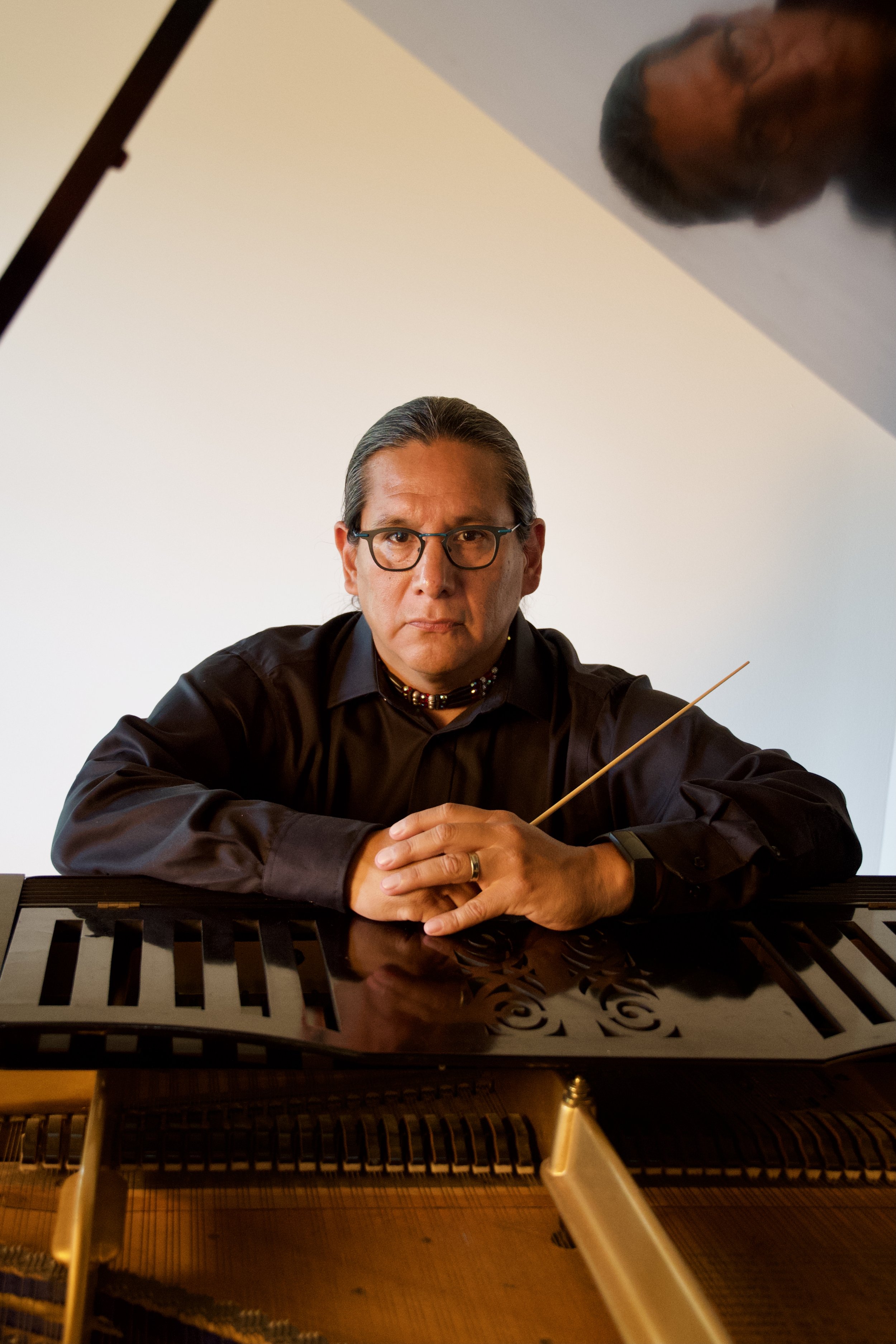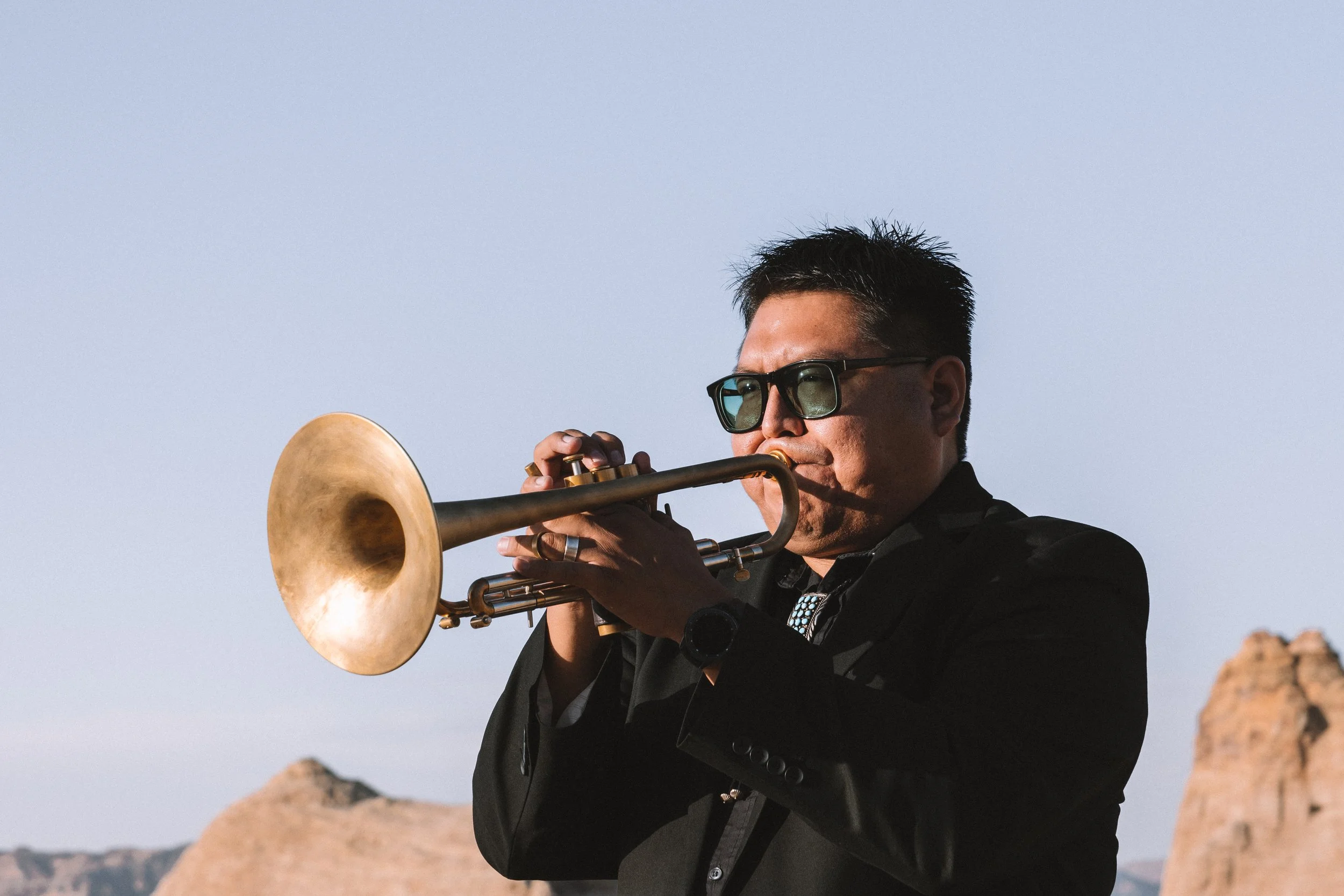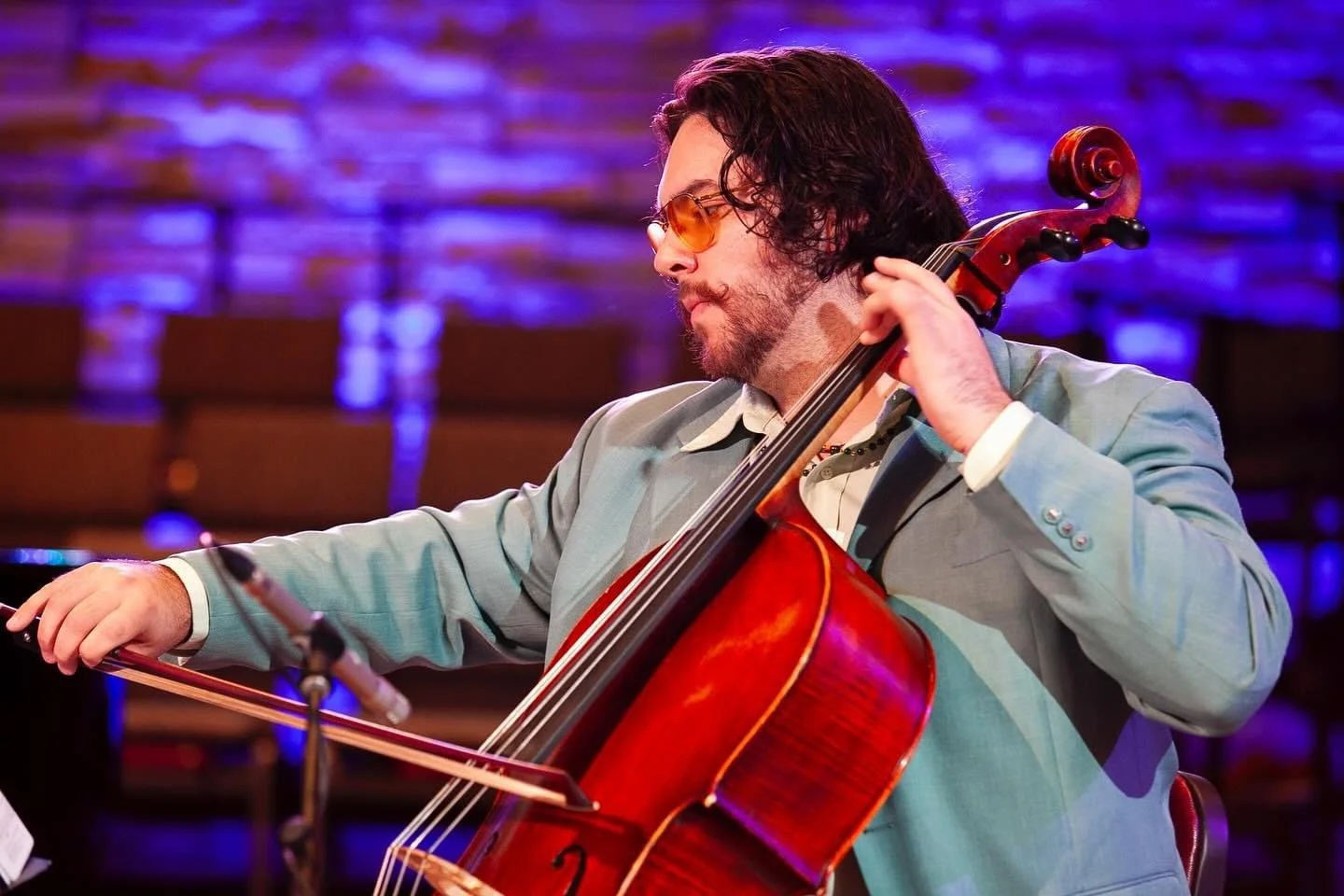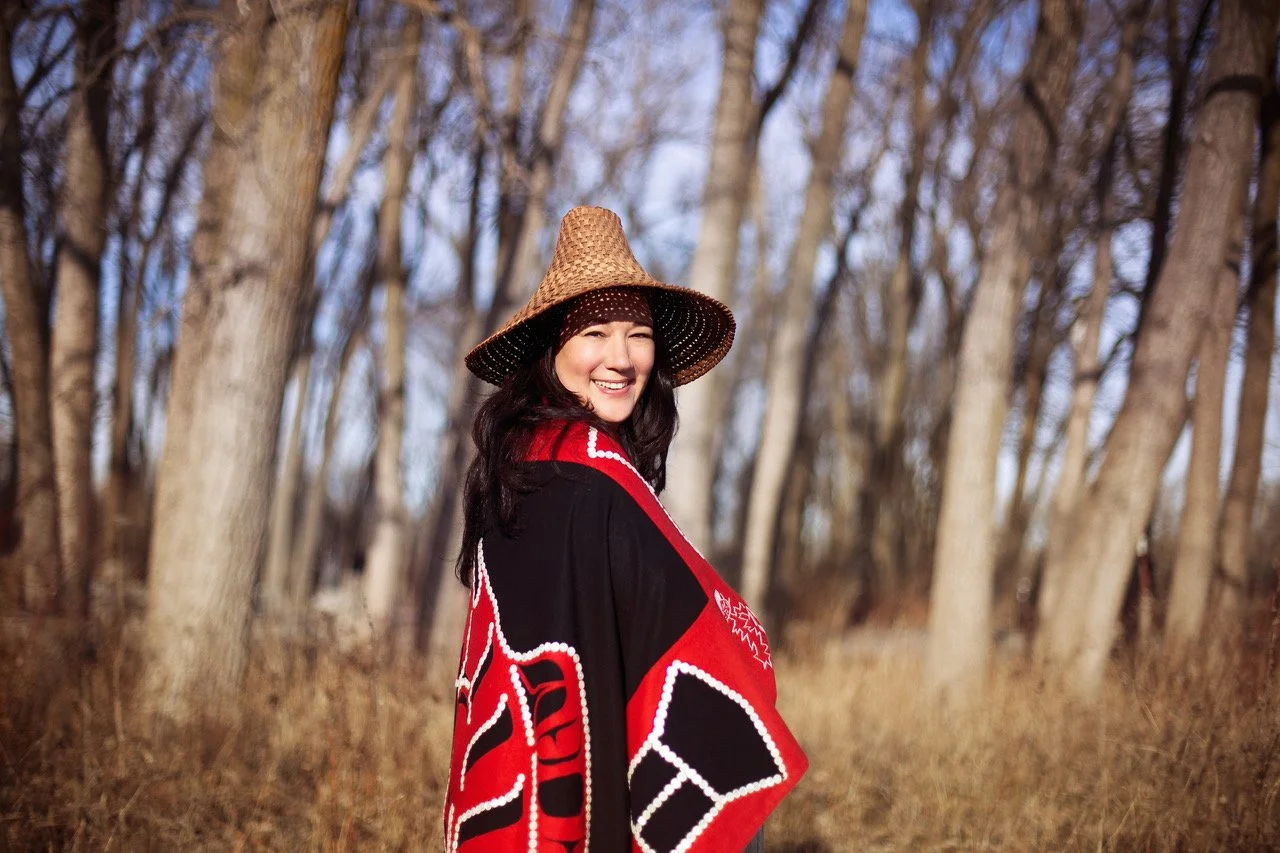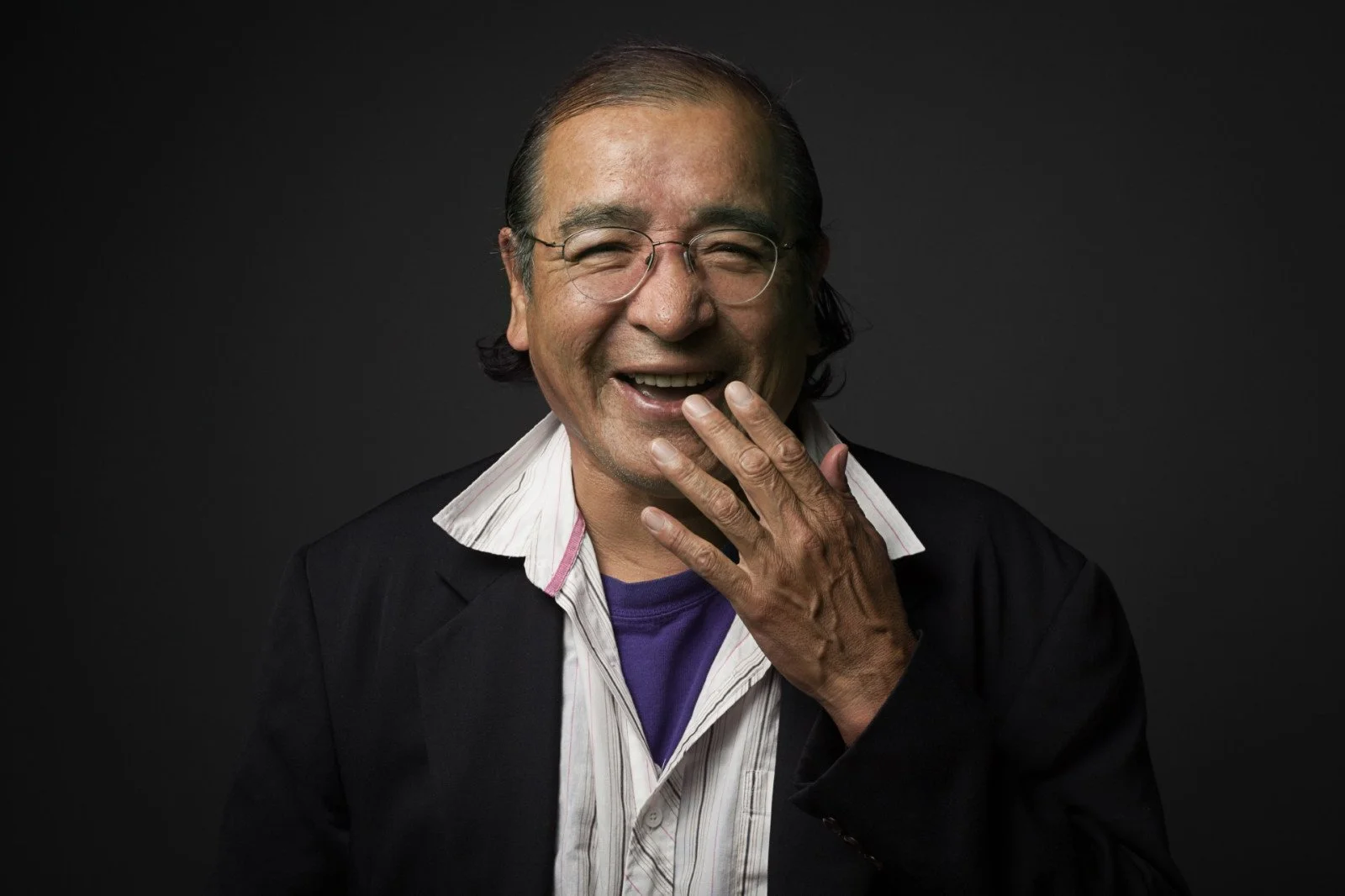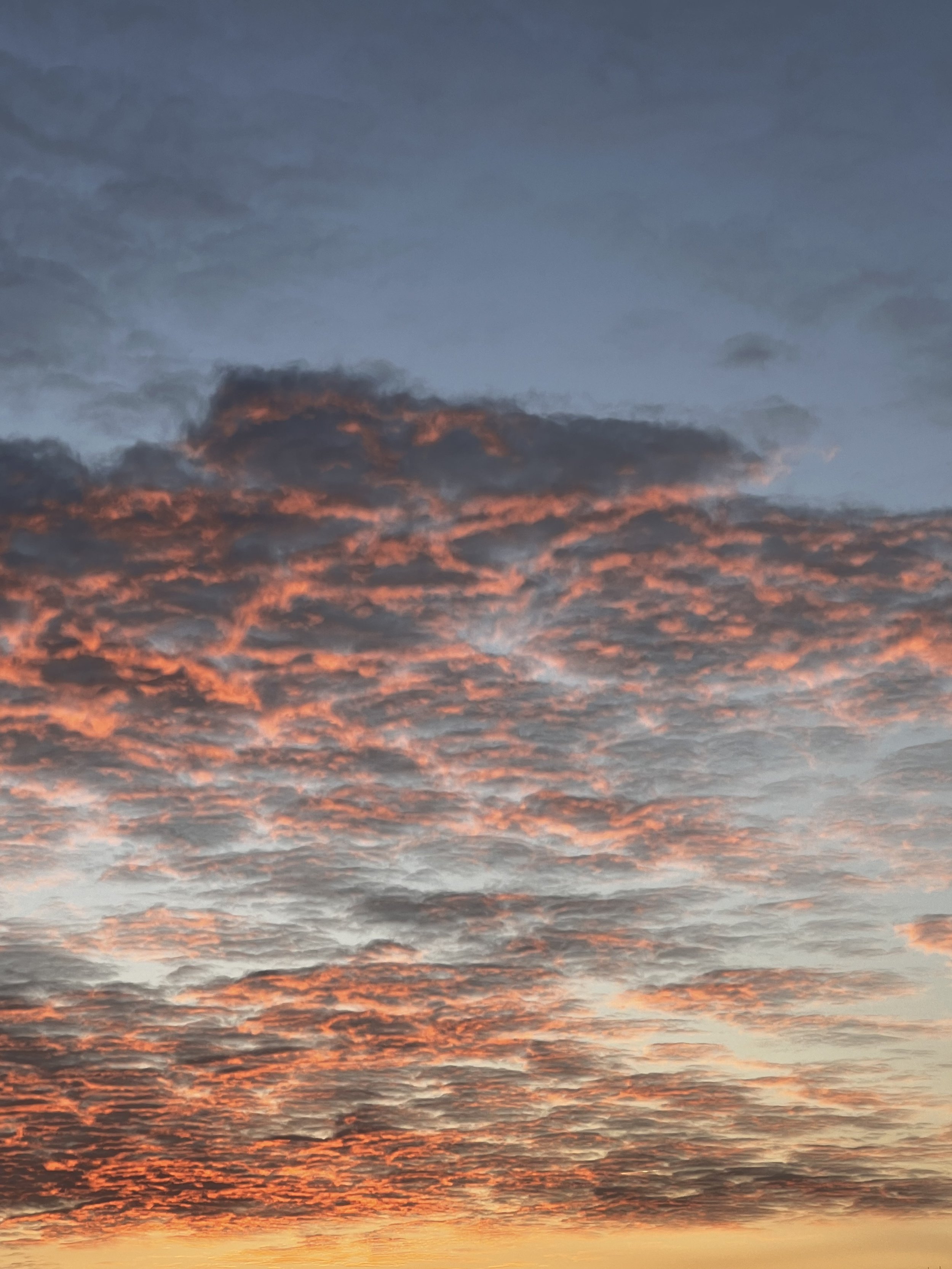
The North American Indigenous Songbook
Meet The Composers of Vol. 1 (2024)
-
![]()
Timothy Archambault
Kichesipirini Algonquin First Nation and Metis Nation of Quebec.
Timothy Archambault is an Indigenous flute player, composer and architect based in Miami. His repertoire includes traditional Canadian Algonquin flute songs (recorded for the Smithsonian National Museum of the American Indian Archives in 2007), early 20th-century American Indian flute music, and new compositions by Indigenous composers. He has recorded with The Polish National Radio Symphony (Opus One), AM Records, Ideologic Organ, The Coast Orchestra, The Bronx Arts Ensemble (Lyrichord), The Queen’s Chamber Band (Lyrichord), The TICO Orchestra, The Oklahoma City University Philharmonic, Subtropics and received commissions from the Metropolitan Museum of Art, Agnes Etherington Art Centre at Queen’s University “Soundings: An Exhibition in Five Parts”, National Gallery of Art East Building and the Winterville Mounds Association. He is a Hereditary Senator of the Kichesipirini Algonquin First Nation, a member of the Métis Nation of Quebec, and First Nations Composer Initiative.
Headshot by CYJO
-
![]()
Raven Chacon
Diné (Navajo)
Raven Chacon is a Pulitzer Prize–winning composer, performer, and installation artist from Fort Defiance, Navajo Nation. As a solo artist, collaborator, and a member of Postcommodity from 2009 to 2018, Chacon has exhibited, performed, or had works performed at the Los Angeles County Museum of Art; The Renaissance Society, Chicago; San Francisco Electronic Music Festival; REDCAT, Los Angeles; Vancouver Art Gallery; Haus der Kulturen der Welt, Berlin; Borealis Festival, Seattle; SITE Santa Fe; Chaco Canyon, New Mexico; Ende Tymes Festival, New York; The Kennedy Center, Washington, D.C.; Whitney Biennial, New York; documenta 14, Athens and Kassel; Carnegie International, and Carnegie Museum of Art, Pittsburgh.
Since 2004, he has mentored more than three hundred Native high school composers in writing new string quartets for the Native American Composer Apprentice Project (NACAP). Chacon is the recipient of a United States Artists Fellowship, a Creative Capital Award, Native Arts and Cultures Foundation Artist Fellowship, the American Academy’s
Berlin Prize, the Bemis Center’s Ree Kaneko Award, and the Pew Center for Arts & Heritage’s Fellowship-in-Residence.
-
![]()
Connor Chee
Navajo Nation
Navajo pianist and composer Connor Chee is known for combining his classical piano training with his Native American heritage. A graduate of the Eastman School of Music and the University of Cincinnati’s College-Conservatory of Music, Chee’s music is inspired by traditional Navajo chants, songs, and culture.
Chee has released 4 studio albums of original pieces and piano transcriptions of Navajo music. The Navajo Piano won Best Instrumental Recording at the 16th Annual Native American Music Awards, and his piece “Beginnings” won Best New Age Song.
Chee’s 2020 release, Scenes from Dinétah, features piano pieces written about elements of Navajo life and culture. It was accompanied by the release of several music videos filmed on the Navajo reservation.
Chee's 2021 release, The Navajo Piano (Revisited), features new recordings of his original 15 compositions from 2014, as well as recordings of the traditional songs that inspired them.
-
![]()
Charles Shadle
Choctaw Nation of Oklahoma
Charles Shadle (b.1960, Ardmore OK) teaches composition, music theory, and music history at the Massachusetts Institute of Technology where he serves as Senior Lecturer in Music, and as Theory Coordinator. He was educated at the University of Colorado, Tulane University, and Brandeis University, where he received his Ph.D. in Composition and Theory, and counts among his teachers Cecil Effinger, Richard Toensing, Barbara Jazwinsky, Yehudi Wyner, Edward Cohen, Harold Shapero, and Eloise Ristad.
Dr. Shadle’s catalogue includes chamber music, four operas, four symphonies, six film scores for the National Film Preservation Foundation, and numerous choral pieces and songs. He is an enrolled member of the Choctaw Nation of Oklahoma. This heritage is reflected in works ranging from the large-scaled Oklahoma Choctaw Cycle (Limestone Gap, Red Cedar, and The Old Place) for chamber ensemble, to the short and accessible Choctaw Animals piano pieces recently made available by MIT: (https://shass.mit.edu/news/news-2021-choctaw-animals-mit-composer-charles-shadle)
Headshot by Kyle Hoepner
-
![]()
Dawn Ierihó:kwats Avery
Kaniènkéha descent
Dawn Avery, composer, cellist, vocalist, educator and GRAMMY nominated performer has worked with musical luminaries Luciano Pavarotti, Sting, John Cale, R. Carlos Nakai, Joanne Shenandoah, John Cage, Grover Washington, and more. Her work infuses elements of sacred and world music often garnered from her study and practice of spiritual practices from around the world. She composes as a singer songwriter in a variety of styles: downtempo, mystic pop, film, theatre and classical. Avery has collected awards for her compositions from Duke University, the Ford Foundation's Indigenous Knowledge, Expressive Culture grant program (of the American Composers Forum), the National Museum of the American Indian, Native American Music Award nomination, Meet the Composer, American Dance Festival, and several Global Music Awards. Her music has been performed in venues around the world, on radio, television and film including interviews with Native America Calling, NPR, and the CBC. Of Mohawk descent, she participates in Longhouse ceremonies and is dedicated to Indigenizing composition and performance, and to the of our future generations.
-
![]()
Timothy Long
Muscogee, Thlopthlocco, and Choctaw descent
Timothy Long is a pianist and conductor of Muscogee, Thlopthlocco, and Choctaw descent who is Music Director of Opera at the Eastman School of Music. He was assistant conductor for three years at the Brooklyn Philharmonic and was subsequently named an associate conductor at the New York City Opera for two seasons.Tim’s training as a pianist and multi-instrumentalist led to conducting engagements with such companies such as Boston Lyric Opera, Wolf Trap Opera, Opera Colorado, Utah Opera, Tulsa Opera, Opera Theatre of Saint Louis, The Juilliard School, Yale Opera, the Oklahoma City Philharmonic, the Oregon Bach Festival Orchestra, the Prague Summer Nights Festival Orchestra, the Trondheim Sinfonietta, and off-Broadway with The New Group. Tim has been on grant panels for the National Endowment for the Arts, Opera America, American Lyric Theater, and the Urban Artist Initiative/NYC. He is an Associate Professor at the Eastman School of Music.
-
![]()
R. Carlos Nakai
Ute-Navajo
Of Navajo-Ute heritage, R. Carlos Nakai is the world’s premier performer of the Native American flute. Originally trained in classical trumpet and music theory, Nakai was given a traditional cedar flute as a gift and challenged to see what he could do with it.
Nakai began playing the traditional Native American flute in the early 1980’s and has released more than 50 albums in his career (with 40 on the Canyon Records label).
While well grounded in the traditional uses of the flute, Nakai has explored new musical settings including new age, world beat, jazz and classical.
R. Carlos has earned eleven Grammy nominations and 10 NAMA awards, a Governor’s Arts Award and an honorary doctorate from NAU.
-
![]()
Martha Redbone
Eastern Cherokee/Choctaw/African American descent
Martha Redbone is a vocalist/songwriter/composer/educator, known for her music gumbo of folk, blues and gospel from her childhood in coal country Harlan County, Kentucky infused with the eclectic grit of pre-gentrified Brooklyn. Inheriting the powerful vocal range of her gospel-singing African American father and the resilient spirit of her mother’s southeastern Cherokee/Choctaw culture and heritage, Redbone broadens the boundaries of American Roots music. With songs and storytelling of her experience as a Native/African American woman and mother navigating in the new millennium, Redbone sings of social justice, connecting cultures, and celebrating the human spirit. Album “The Garden of Love-Songs of William Blake” - “a brilliant collision of cultures” (New Yorker).
With collaborator Aaron Whitby, Redbone works include: “Belonging”- 2022 Moab Music festival, “A Mother’s Love”- 2021 Freshgrass Bluegrass Concerto, “Black Mountain Calling”- Dave Eggar/Tasha Warren, 2022 Broadway revival of “For Colored Girls..”. 2020 Drama Desk Award “For Colored Girls”-Public Theater.
-
![]()
Sage Bond
Navajo and San Carlos Apache
Hailing from the Four corners region within the Navajo Nation, Sage Bond writes with the influences of personal life, culture, and heavy metal. These aspects can be found in her singer-songwriter career as well as her compositions during her time with the Native American Composers’ Apprentice Project. Since the age of 13, Bond has joined and collaborated with bands of several genres. Throughout her career she has released two albums, auditioned for American Idol and The Voice and has had a Native American Music Award (NAMMY) nomination.
Meet The Composers of Vol. 2
-
Delbert Anderson
Diné (Navajo)
Delbert Anderson, a Diné jazz trumpet artist, composer, and educator, stands at the forefront of a vibrant Native American jazz scene. His work, deeply rooted in his Diné heritage, seamlessly integrates Navajo "spinning songs" of love, healing, and courtship with jazz and funk, thus marking him as a community-minded Indigenous individualist. Through his Delbert Anderson Quartet, Anderson revives the improvised sounds of the Diné circle, blending them with jazz, funk, and hip-hop. His compositions are inspired by Navajo Nation landscapes, historical events, and the desire to preserve and educate about Diné history.
His commitment to community and education is evident through his "Build A Band" educational program, which teaches jazz improvisation to young students through a Diné and family curriculum, wellness programs, and community outreach initiatives aimed at evoking change for the well-being of all humans.
-
![]()
Tabitha Fair
Chickasaw
Tabitha Fair is a Chickasaw pop, country, and gospel singer and songwriter who has collaborated with some music’s most celebrated artists. Raised in Oklahoma, Fair’s earliest musical influences were through church where her father preached and her mother was a music minister. By the age of 15, she had moved to Nashville, signed with Skylight Records, and began recording and touring. She later co-founded the contemporary Christian group Avalon before pursuing her own path as a solo artist.
Based in New York, Fair quickly established herself as one of the industry’s most in-demand vocalists. She has performed with Sting, Celine Dion, Bruce Springsteen, Lady Gaga, John Legend, Faith Hill, Wynonna Judd, Rascal Flatts, Elton John, Jennifer Hudson, Mary J. Blige, Lenny Kravitz, Bette Midler, and Snoop Dogg, among others. Her songwriting has also been recognized with the Songwriters Hall of Fame’s Abe Ohlman Award and her song collaboration with Carole King, “If We Get Through This,” was featured in the film The Sum of All Fears. Fair’s voice has been heard on national broadcasts and historic stages alike. She has performed at the inaugurations of Presidents Bill Clinton and Barack Obama, sung at multiple Kennedy Center Honors, appeared on the Hope for Haiti Now Benefit Concert, PBS’s A Capitol Fourth, and is a regular background vocalist with The Roots on The Tonight Show Starring Jimmy Fallon.
-
![]()
Kiegan Ryan
Cherokee Nation of Oklahoma
Kiegan Ryan is an a contemporary classical composer and cellist from Oklahoma City, Oklahoma. He is a citizen of the Cherokee Nation of Oklahoma. Ryan composes chamber music, art song, orchestral music, educational music, film music, and theatre music. His music has been performed with the Oklahoma Virtuosi Chamber Orchestra, Opera Montana, and the Oklahoma City Philharmonic. He has had performances at Oklahoma City University, South Dakota Music Educator Conference, The Juilliard School, National Sawdust, and Lincoln Center. Ryan has upcoming performances with the Oklahoma City Philharmonic and with St. Paul Chamber Orchestra.
-
![]()
Danielle Olana Jagelski
Oneida Nation of Wisconsin / Red Cliff Band of Ojibwe
Danielle Jagelski is a conductor, composer, and creative producer. She is the artistic director Renegade Opera, producer for First Nations Performing Arts, Co-founder of Simmer Arts and faculty at Manhattan School of Music-Precollege Division. An avid composer of song, chamber, solo, and choral works, Danielle’s music has been performed throughout North America including at notable venues such as Performance Space New York, Roulette Intermedium, Green Room 42, and The National Gallery of Art in Washington, DC. Danielle is also sought out for her execution of contemporary opera-theatre works as a conductor.
An enrolled citizen of the Oneida Nation of Wisconsin and Red Cliff Band of Ojibwe, Danielle often collaborates with other Indigenous artists. As producer for First Nations Performing Arts, she is passionate about building kinship through interdisciplinary projects.
-
![]()
Timothy Long
Muscogee, Thlopthlocco, and Choctaw descent
Timothy Long is a pianist and conductor of Muscogee, Thlopthlocco, and Choctaw descent who is Music Director of Opera at the Eastman School of Music. He was assistant conductor for three years at the Brooklyn Philharmonic and was subsequently named an associate conductor at the New York City Opera for two seasons.Tim’s training as a pianist and multi-instrumentalist led to conducting engagements with such companies such as Boston Lyric Opera, Wolf Trap Opera, Opera Colorado, Utah Opera, Tulsa Opera, Opera Theatre of Saint Louis, The Juilliard School, Yale Opera, the Oklahoma City Philharmonic, the Oregon Bach Festival Orchestra, the Prague Summer Nights Festival Orchestra, the Trondheim Sinfonietta, and off-Broadway with The New Group. Tim has been on grant panels for the National Endowment for the Arts, Opera America, American Lyric Theater, and the Urban Artist Initiative/NYC. He is an Associate Professor at the Eastman School of Music.
-
![]()
Marion Newman
Member of the Kwakiutl First Nation on Vancouver Island, BC, Canada
Marion Newman, whose traditional name is Nege’ga, (Kwagiulth & Stó:lō First Nations with English, Irish, Scottish heritage) is one of Canada’s most accomplished singers in a wide range of repertoire. Operatic roles include Carmen, Rosina, and many roles written specifically for her by composers and librettists who are telling compelling stories about Indigenous life and history. She originated the title role in Shanawdithit and Dr. Wilson in the opera Missing. She toured as Dawn in the Welsh National Opera’s production of Migrations. Recent performances include Maddalena in Verdi’s Rigoletto.
Composing has been a side interest since she was five and she is always overjoyed to discover talented Indigenous musicians to champion.
Marion is an assistant professor of voice at the University of Victoria in Canada. She is also the host of Saturday Afternoon at the Opera, a weekly show on CBC National Radio.
-
![]()
Tomson Highway
Cree
Tomson Highway is a playwright, novelist, pianist, and songwriter. He is a registered member of the Barren Lands First Nation and was born in the remotest reaches of northwestern Manitoba where it meets the Northwest Territories. Widely regarded as one of Canada’s most influential Indigenous voices, he gained international recognition with his plays The Rez Sisters (1986) and Dry Lips Oughta Move to Kapuskasing (1989). Other works include the novel Kiss of the Fur Queen, multiple Cree-English children’s books, opera libretti, a memoir, and academic publications. Highway has received the Dora Mavor Moore Award, the Chalmers Award, the National Aboriginal Achievement Award, the Order of Canada, and holds ten honorary doctorates. A tireless advocate for the arts, Tomson Highway is dedicated to preserving and celebrating Cree language and storytelling traditions through literature, theatre, and music.
Photo by Sean Howard
The 2024 North American Indigenous Songbook was funded in part by Humanities New York with support from the National Endowment for the Humanities.
Any views, findings, conclusions or recommendations expressed in this program do not necessarily represent those of the National Endowment for the Humanities







